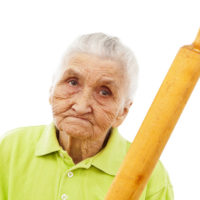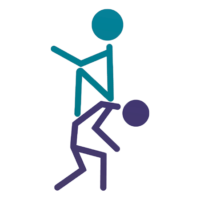Dear Neil: I was very interested to read your column about the rage-shame connection. My husband suffers from this to a degree that it affects every day of his life. How do you heal shame?
Trying to Overcome
Wellington, New Zealand
Dear Trying to Overcome: The rejection of self is central to feeling toxic shame. A shame-based person tries desperately to present a mask to the world that says “I’m more than human” or “I’m less than human.” To be more than human is to never make a mistake. To be less than human is to believe that you are a mistake, says John Bradshaw in “Healing The Shame That Binds You.” (Health Communications, Inc.)
Here’s what you can do to heal inner shame:
- Keep a journal or diary of your defensive over-reactions. Each evening before retiring, think back over the events of the day. When were you upset? Where did you over-react? What was the context? Who was there? What was said to you? What made you feel inadequate or rejected? How does what was said to you compare to what you say to yourself? What do say to yourself about your adequacy and lovableness?
- Other than anger, what other emotions are you feeling?
- What do people say or do to you that triggers your shame? With whom does this happen, and in which circumstances? How often?
- Ask yourself “What am I shamed about right now?” every time you get angry. It’s the best way to break the shame-rage link. Watch for sudden bursts of anger—they often signal hidden shame. Somebody says something critical that catches you by surprise. You feel hurt, betrayed, rejected. Many times, when you feel suddenly attacked and shamed by another person, it’s actually you feeling ashamed of yourself. Tell the other person you’re having a shame attack—and you need his/her help to look at your reaction and talk about it. Your anger is a distraction from your real feelings. The main issue is that you’re feeling shame.
- Treat others with respect—especially those you love and care about. Consistently tell them that they are good, good enough, and lovable— that you value them and find them worthwhile and important. Then pass up chances to insult, attack, criticize or shame them. Give praise out loud for the good you see in others. This is the opposite of shaming behavior.
- Become a student of self-love and self-acceptance. What is it that triggers your feelings of unworthiness or inadequacy? What makes you feel better about yourself that isn’t hurtful or disrespectful toward you or toward others? How can you accept your imperfections or mistakes or requests from others about what they would like you to do differently—without taking such feedback as an indictment of your character, value or worth? How can you better value, love, appreciate and approve of yourself as a human being?
If you work on these ideas and find yourself feeling overwhelmed, stop immediately. This means you need to do them with someone who is trained to assist you.
The good news is that you can achieve greater calmness, peace of mind, happiness, self-acceptance—and healthier, more intimate relationships with others. All you need to do to face your feelings of inadequacy, undesirability, unlovableness and inner shame.


